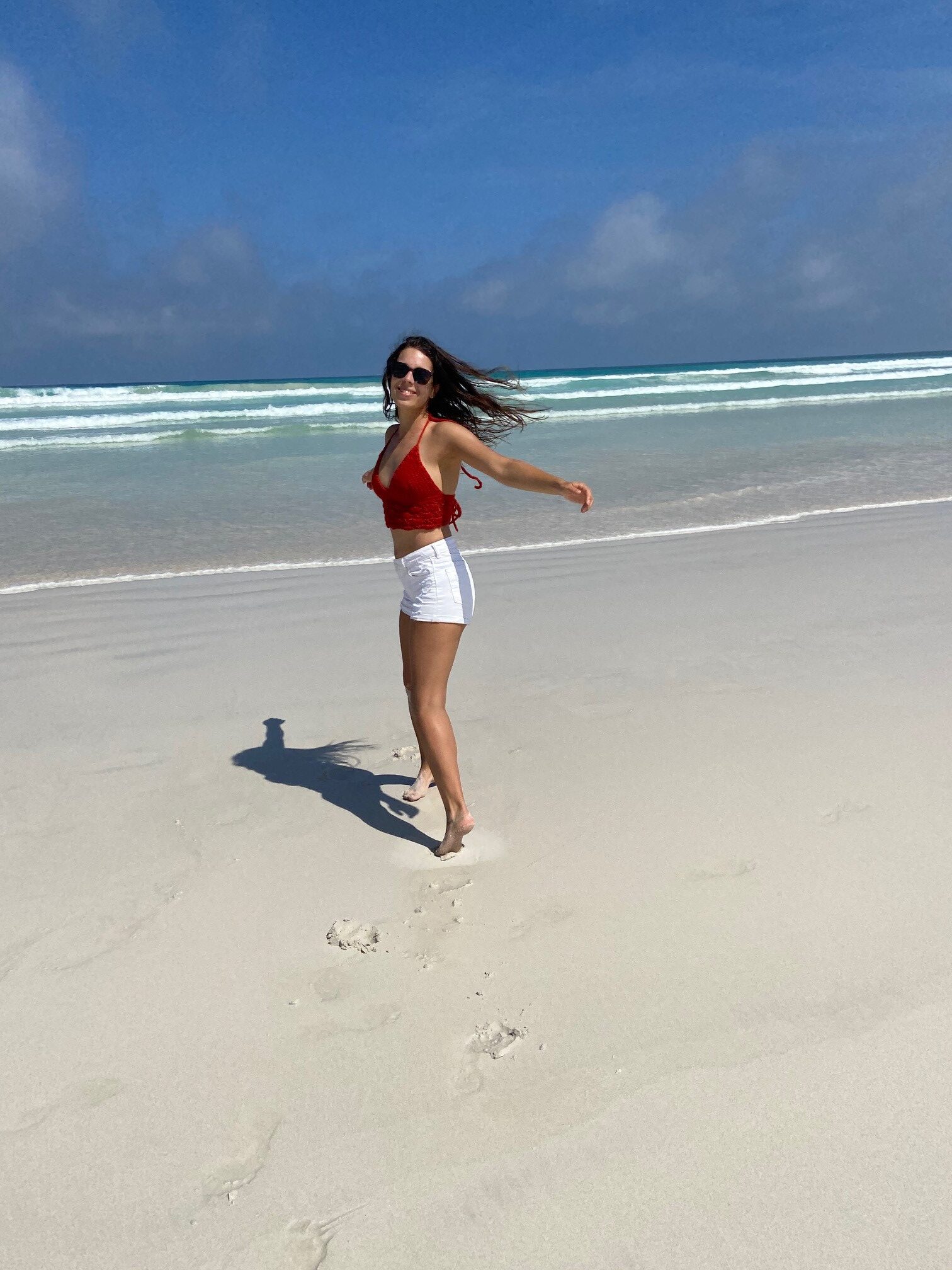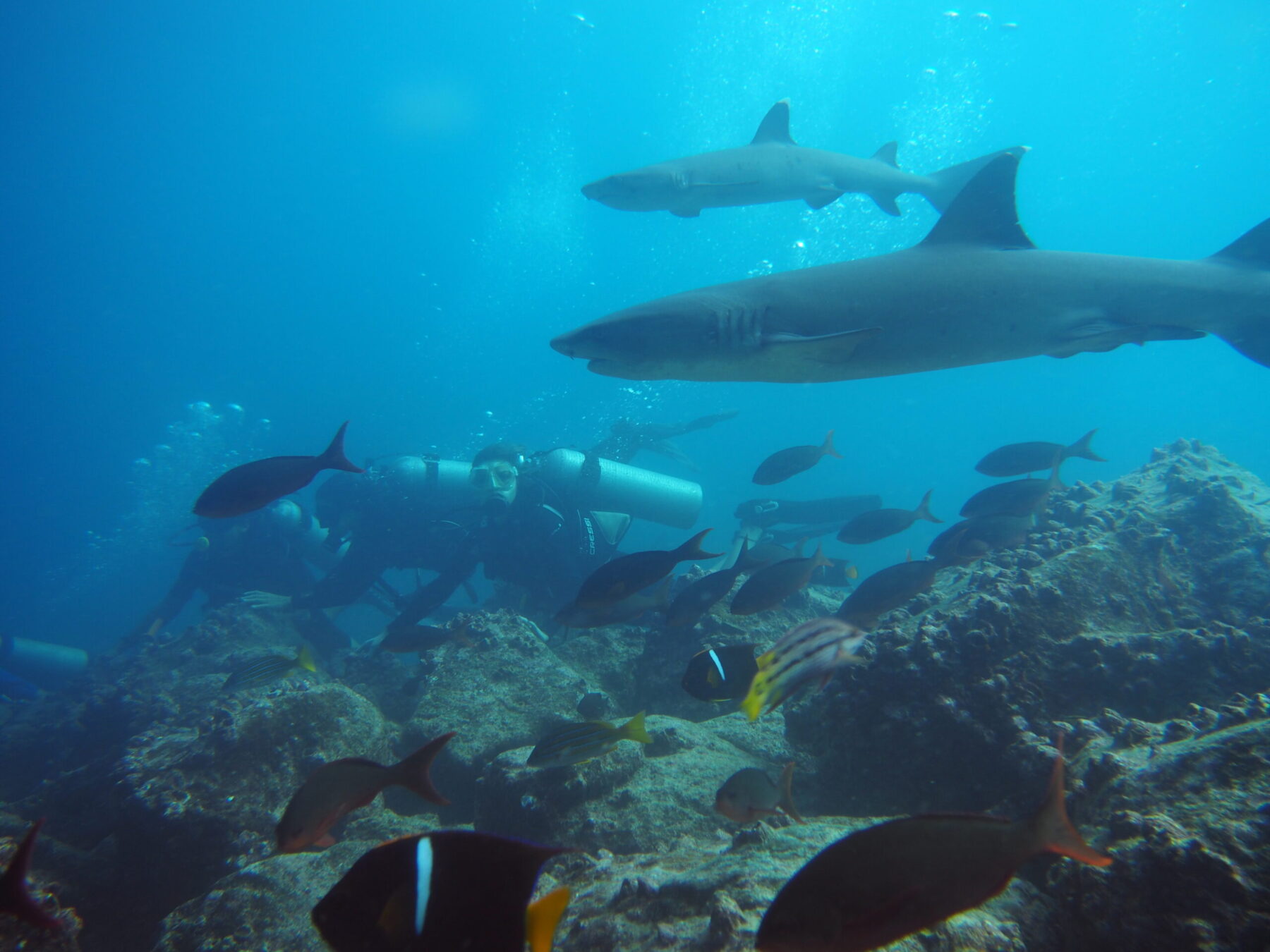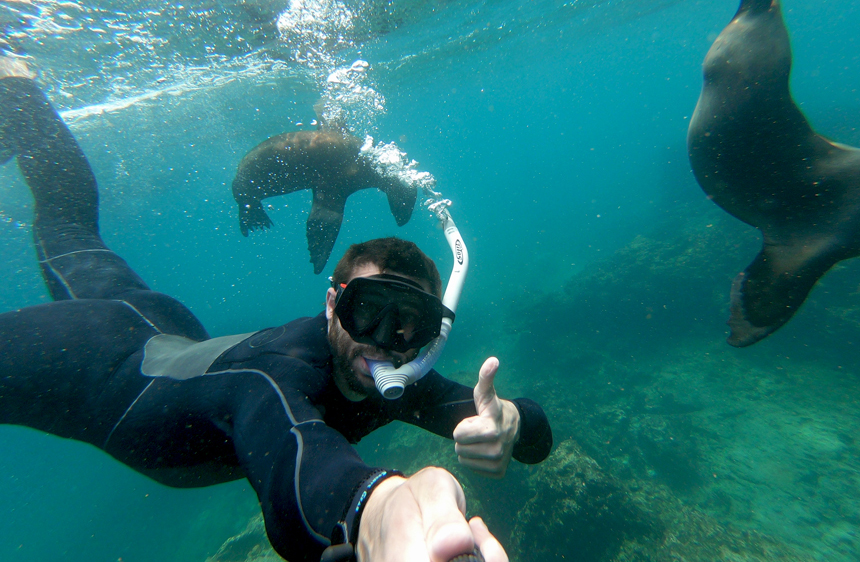
Cold Season for Cool Activities
The Galapagos cool season (also known as the Galapagos dry season or Garua season) occurs from June through November. This time of year, Galapagos average temperatures range from the mid 70’s Fahrenheit (21 Celsius) to the low 60’s Fahrenheit (16 Celsius). During the cool season the southern Humboldt and Peru currents cool the water temperature to as low as 66 Fahrenheit (19 Celsius). This brings cooler days and a persistent misty fog known as Garua, especially in the highlands. Rain is uncommon during the cool season.
During the cool season tradewinds increase, causing the ocean to be choppier. Underwater visibility is decreased, but still adequate for snorkeling. A wetsuit may be required for underwater activities. The cold current and tradewinds cause mixing which brings a bloom of life to the oceans, making marine life explode. This is the best season to view dolphins, whales and other large marine animals.


The legendary Ecuador diving destination is often considered by experienced divers to represent something of a pinnacle in their scuba careers. In that sense, many agree that, quite simply, the Galapagos Islands have the best liveaboard diving trips in the world, plus incredible non-diving wildlife adventure cruises.
Such is the range of creatures, that it is difficult to avoid lists when discussing Galapagos scuba diving. Imagining a vacation involving sea lions, penguins, seals, eagle rays, marine iguanas, sea turtles, golden rays, whale sharks, hammerheads and many other shark species, is a phenomenal experience. These encounters, which are at once educational and exciting, make the appeal of the archipelago obvious.
While many places have superior reefs, sea conditions and ease of accessibility, there is no other island chain here, the area is in a huge protected marine reserve and virtually free of commercial fishing, and the waters - especialy at the islands of Darwin and Wolf - are densely populated by a vast and disparate array of marine creatures. Since the Galapagos are volcanic oceanic islands, unconnected to the continent, deep sea upswellings make the waters rich in nutrients and therefore thriving with life.
Learning about evolution by natural selection in a place where the evidence is so compelling and where historically, the Galapagos Islands played such a major role in the development of Darwin's revolutionary thinking is truly a unique vacation experience. To do so in this far-flung part of Ecuador, where each dive promises extraordinary sightings, is nothing short of a ‘must do once in a lifetime’ experience for any semi-serious diver.